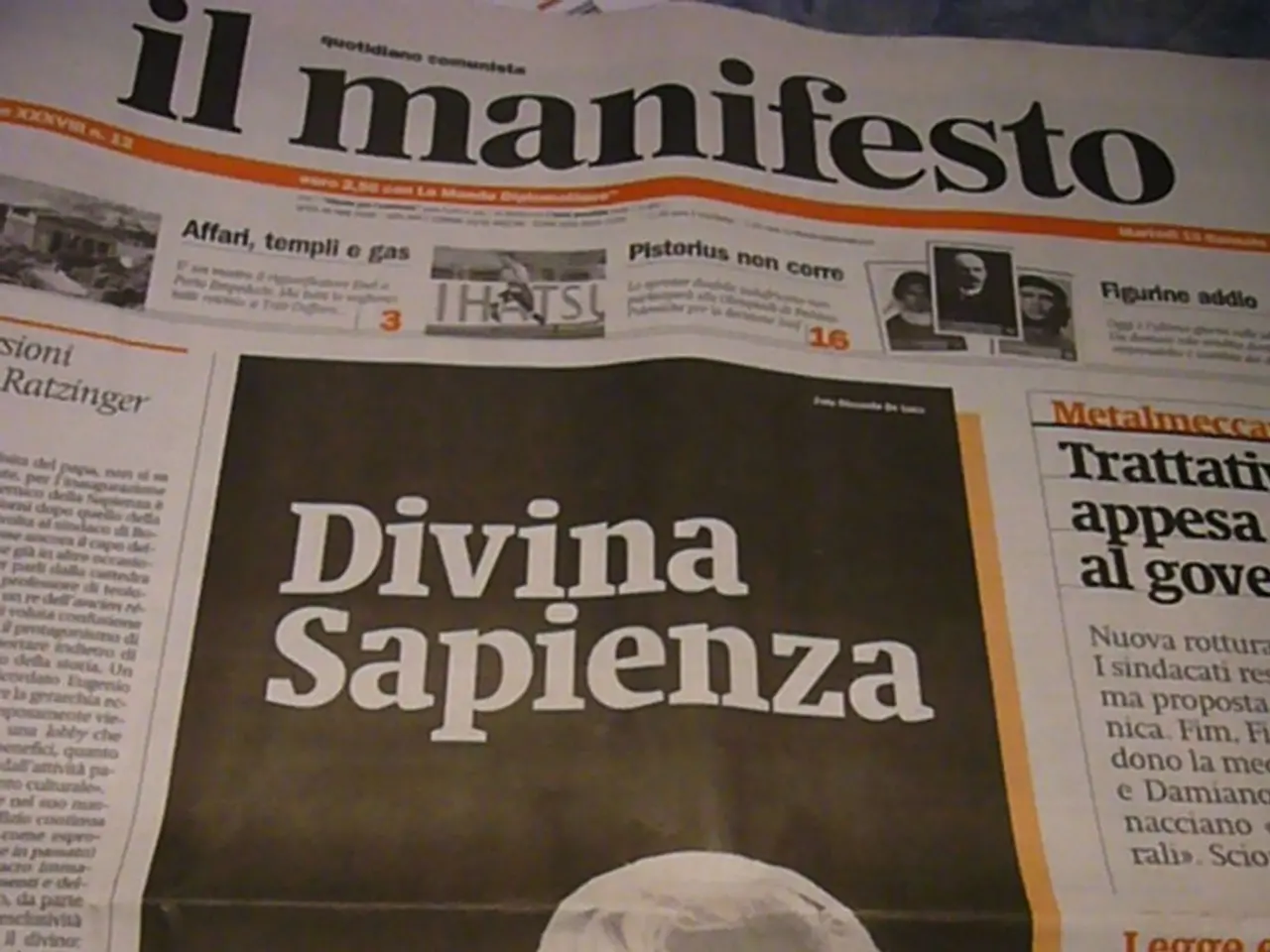Media Professionals Maintain an Implicit Understanding Regarding Topics to Avoid Reporting
Non-disclosure agreements (NDAs) and self-censorship are shaping the landscape of American journalism, potentially impacting the country's freedom of speech in significant ways. Here's a closer look at these influences:
Non-Disclosure Agreements (NDAs) in Journalism
- Suppressing Important Narratives: NDAs can prevent individuals from sharing sensitive information, such as stories of public interest or whistleblower accounts. For example, a lawyer's remorse over drafting NDAs for women with stories about Donald Trump illustrates how these agreements can suppress crucial narratives, possibly altering the public discourse [1].
- Legal and Ethical Dilemmas: While NDAs are not inherently unethical, their misuse can create ethical dilemmas. They may be employed to conceal misconduct or hide information that should be publicly known, fostering a culture of secrecy. This can deter journalists from investigating or reporting on certain topics due to fear of legal repercussions [4].
- Hindering Investigative Journalism: The widespread use of NDAs can impede investigative journalism by limiting access to essential information. This restricts the ability of journalists to uncover and report on important issues, potentially protecting those in power and maintaining the status quo.
Self-Censorship in Journalism
- Fear of Retaliation: Self-censorship often arises from fear of legal or professional repercussions. Journalists may choose not to pursue certain stories or report on sensitive topics due to concerns about lawsuits, loss of employment, or damage to reputation.
- Conformity and Exclusion: Self-censorship can lead to conformity within media outlets, where certain viewpoints or stories are suppressed to avoid controversy or maintain a specific editorial stance. This can result in a lack of diversity in reporting and perspectives.
- Influencing Public Discourse: By limiting the range of voices and viewpoints in the media, self-censorship can restrict the public's access to diverse information, potentially skewing public opinion and hindering informed decision-making.
Combined Effects on Freedom of Speech
- Restricting Information Flow: The combined impact of NDAs and self-censorship can significantly restrict the flow of information in the media, limiting the public's access to important news and viewpoints.
- Chilling Effect on Journalists: These factors can create a chilling effect on journalists, discouraging them from pursuing stories that might be controversial or sensitive, even if they are in the public interest.
- Impact on Public Trust: Over time, this can erode public trust in the media, as people may perceive that certain stories are being suppressed or skewed, leading to a decrease in media credibility and an increase in skepticism about the information presented.
In conclusion, while NDAs and self-censorship serve different purposes, their effects on American journalism and freedom of speech are intertwined. They can limit the dissemination of information, restrict investigative journalism, and ultimately affect public discourse by reducing the diversity of viewpoints and stories available to the public.
As a response, some states are pushing back against non-compete agreements, recognizing their chilling effect on free speech and fair competition. Civil rights organizations are also stepping up to defend journalists' right to speak, aiming to preserve the integrity of journalism and uphold the principles of freedom of speech.
[1] https://www.nytimes.com/2018/01/12/us/politics/michael-cohen-trump-nda-stormy-daniels.html [4] https://www.poynter.org/ifcn/2018/non-disclosure-agreements-and-their-impact-on-journalism/689949/
- NDAs and self-censorship in journalism can lead to the suppression of important conflict-related stories, as individuals might be prevented from sharing sensitive information that sheds light on political incidents or public misconduct.
- A culture of politics-driven self-censorship can consequences such as maintaining secrecy, obstructing balanced news coverage, and skewing public opinions, thus undermining the country's freedom of speech.








